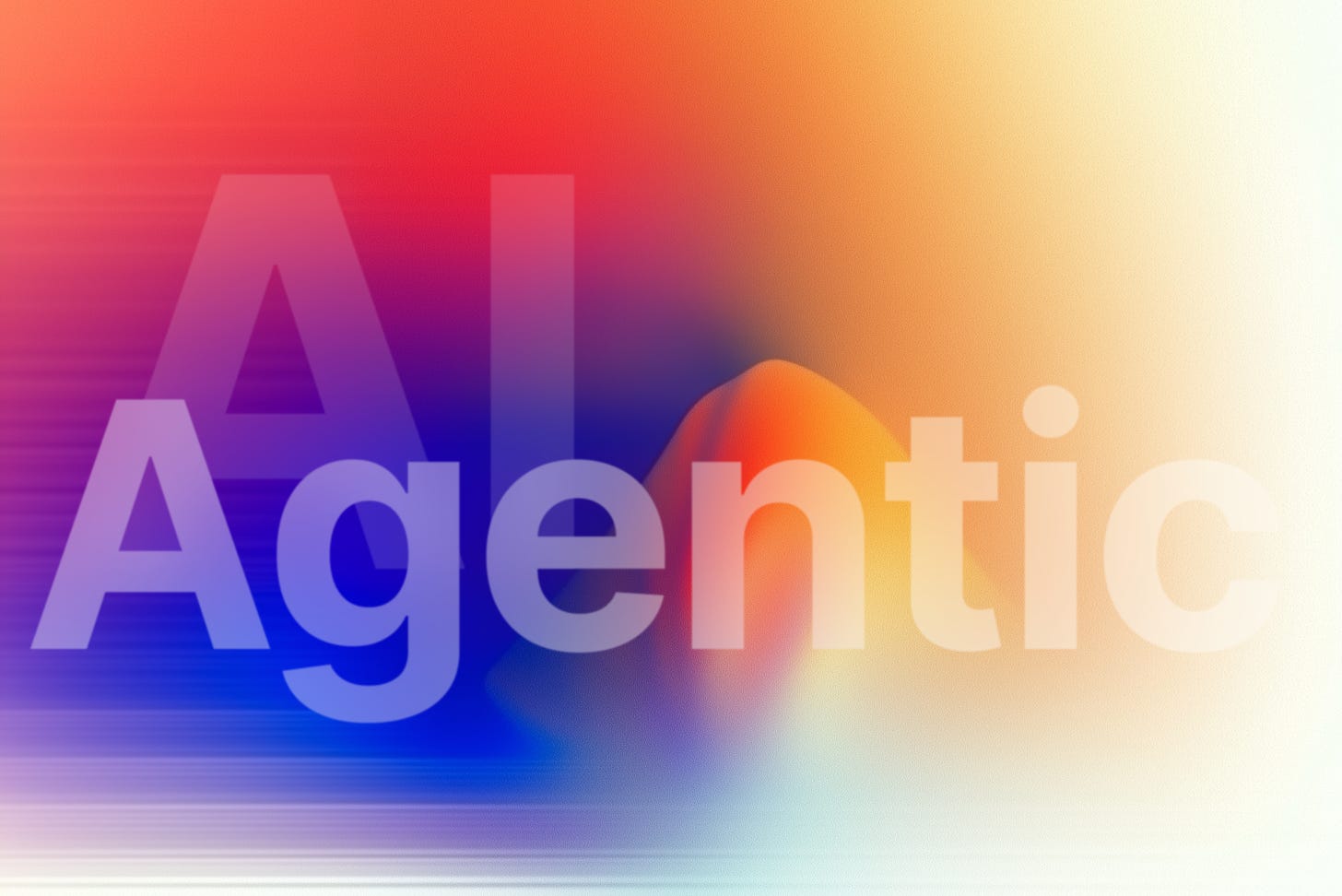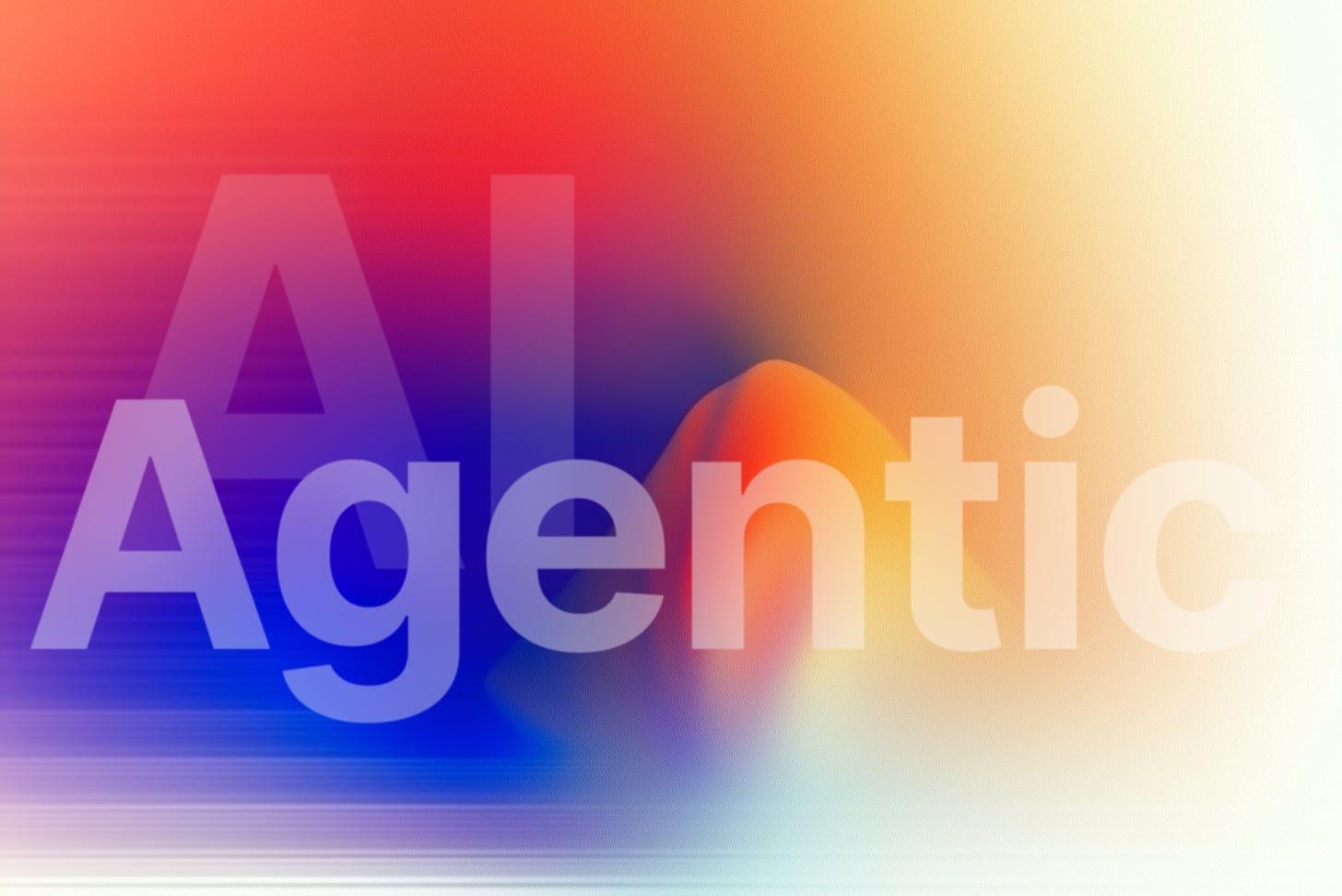AI agents and the Digital Fairness Act – law for people and… machines [?]
Agentic artificial intelligence (agentic AI) is the next big step in AI development, one that could reshape digital markets and completely change how we use online services.
[PL below]
Unlike ordinary chatbots, such agents don’t just answer questions – they can independently browse the internet and carry out complex, multi-step tasks on our behalf. For example, they could find the best flight deal, book a hotel, and purchase tickets – all without our involvement.
This is a huge technological leap, and it comes at a time when the European Union is engaged in an important debate about the future of consumer law. In 2026, the Digital Fairness Act is expected to be introduced. Yet, looking at today’s discussions, agentic AI barely appears in them. This could mean that by the time the law comes into force, it will already be outdated.
Who are these “agents” and how can they transform online commerce
Almost everyone has heard of generative AI – like ChatGPT or other large language models (LLMs). AI agents, however, are something more – programs built on these models, but equipped with the ability to independently perform many steps in sequence. They can browse the internet, send emails, handle APIs, or even control devices. IBM and OpenAI define them similarly – as systems that work on our behalf, with us setting only the goal and any constraints.
Agents can exist as standalone applications, browser add-ons, or even built-in features in the operating systems of our computers and phones.
In practice, this means that instead of searching for a product on Google or Amazon ourselves, we could simply tell the agent: “Find me the best tablet under 200 euros and order it with next-day delivery” – and it would handle everything.
Companies like PerplexityAI and OpenAI are already testing shopping functions on their platforms. Amazon and Google are also building their own versions of agents that will purchase products on behalf of users. This could completely shift the balance of power in e-commerce – moving from a “platform economy” to an “agent economy.” But there is also another scenario: that the market will be dominated by only a few of the most powerful agents, who will become the new gatekeepers.
Not everything in this picture is a threat – quite the opposite. Agents can help us save time, reduce costs, compare offers, and protect against manipulative dark patterns. The problem is that for these benefits to become reality, we need strong legal and technical safeguards.
Is the law keeping up? For now – not really
The European Commission is preparing a consumer law reform under the Digital Fairness Act. It aims to address issues such as dark patterns, addictive design, harmful personalization, and subscription abuse.
However, AI agents are barely mentioned in these conversations. The Fitness Check report did include a brief reference to “automation tools,” but this applied only to automatic contracts – and the topic was quickly dropped. If this remains the case, the new rules will be tailored to a world that will no longer exist.
Why we need “agent-ready” laws
There are at least two reasons to rethink our approach: to enable the growth of innovative agent-based businesses while protecting consumer autonomy. The goal is not to add more legal paragraphs for the sake of it, but to adapt existing laws so they work in the new reality.
Current law is written with the human in mind – their needs and weaknesses – assuming it is the person making the purchasing decision. In the world of agents, it will increasingly not be us pressing “buy now,” but AI. Consumer law will therefore need to become “law for machines” – still protecting people.
How can this be done? We need to rethink several key areas.
1. From buttons to APIs
EU law today, for example, requires a “place order with obligation to pay” button and clear pre-contract information. But an agent will not be clicking a button – it will be communicating via an API. Such rules may quickly become obsolete. We may need to introduce, for instance, a mandatory “cancellation API” alongside cancellation buttons so an agent can effectively revoke an order.
2. New forms of manipulation 2.0
An AI agent could manipulate us – using our data and exploiting our cognitive weaknesses, becoming a kind of “manipulation engine.” But it is also possible to manipulate the agent itself.
Dishonest sellers or hackers could use “agentic dark patterns,” injecting harmful commands (prompt injection) or employing adversarial attacks to get the agent to act against our interests – for example, sending money to the wrong place or revealing our data.
Interestingly, agents may be less vulnerable to common human-targeted tricks, such as click fatigue or intrusive pop-ups. But entirely new vulnerabilities will emerge – ones that must be anticipated.
3. Shifting the focus from contract law to design requirements
Today, the law focuses on the moment of contract conclusion – the “magically important point.” In the agent world, our role may be limited to the initial setup and defining the rules for the agent’s operation.
Consumer protection will therefore require design requirements for AI agents themselves – more like product safety law – rather than relying on contractual rules at the moment of transaction.
4. “Average consumer” or “average agent”?
Current law refers to the “average consumer” – a person who is well-informed, attentive, and careful. But what if the decision is made by an AI agent? Does this model still make sense? Perhaps we will need an “average AI agent” test. For now, research into “machine psychology” or “AI psychometrics” is still in its infancy, and we do not yet know whether agents will share human cognitive biases or “think” more rationally.
In conclusion
EU consumer law is not yet ready for the arrival of agentic AI. The development will be rapid and profound, and if we want the law to keep pace, we must adapt it now. Otherwise, when AI agents become an everyday reality, we will be left with rules written for circumstances that no longer exist.
The EU has the opportunity to lay the groundwork for an agent-driven economy – just as it once adapted the law to the platform economy. But this will require courage, imagination, and the recognition that in the future, the law will have to serve not only people, but also the machines acting on our behalf.
Agenci AI i DFA - Prawo dla ludzi i… maszyn
Agentowa sztuczna inteligencja (Agentic AI) to kolejny wielki krok w rozwoju AI, który może na nowo ukształtować rynki cyfrowe i całkowicie zmienić sposób, w jaki korzystamy z usług online. W odróżnieniu od zwykłych chatbotów, tacy agenci nie tylko odpowiadają na pytania – potrafią samodzielnie przeszukiwać internet i wykonywać skomplikowane, wieloetapowe zadania w naszym imieniu.
Mogą na przykład znaleźć najlepszą ofertę lotu, zarezerwować hotel i kupić bilety, czyli wszystko bez naszego udziału.
To ogromny skok technologiczny, a przychodzi on w momencie, kiedy w Unii Europejskiej toczy się ważna dyskusja o przyszłości prawa konsumenckiego. W 2026 roku ma pojawić się Ustawa o Uczciwości Cyfrowej (Digital Fairness Act). Tylko że, patrząc na to, jak dziś wygląda debata, agentowa AI praktycznie się w niej nie pojawia. A to może oznaczać, że jeszcze zanim prawo wejdzie w życie, będzie już… przestarzałe.
Kim są ci „agenci” i jak mogą zmienić handel online
O generatywnej AI jak ChatGPT czy inne duże modele językowe (LLM) słyszał już prawie każdy.
Agenci mogą być osobnymi aplikacjami, dodatkami do przeglądarek, a nawet wbudowanymi funkcjami w systemach operacyjnych naszych komputerów i telefonów.
W praktyce oznacza to, że zamiast samodzielnie szukać produktu w Google czy na Amazonie, możemy po prostu powiedzieć agentowi: „Znajdź mi najlepszy tablet do 1000 zł, zamów go z dostawą na jutro” i on to zrobi.
Firmy takie jak PerplexityAI czy OpenAI już testują funkcje zakupowe w swoich platformach. Amazon i Google także tworzą swoje wersje agentów, które będą kupować produkty w imieniu użytkowników. Może to całkowicie zmienić układ sił w e-commerce z „sieci platform” możemy przejść do „sieci agentów”. Ale jest też drugi scenariusz: że rynek zdominują tylko nieliczni, najsilniejsi agenci, którzy staną się nowymi „strażnikami dostępu”.
Nie wszystko w tym obrazie jest groźne - wręcz przeciwnie. Agenci mogą pomóc nam oszczędzać czas, obniżać koszty, porównywać oferty i chronić przed manipulacjami typu dark patterns. Problem w tym, że aby te korzyści stały się rzeczywistością, potrzebujemy solidnych zabezpieczeń prawnych i technicznych.
Czy prawo nadąża? Na razie nie bardzo
Komisja Europejska szykuje reformę prawa konsumenckiego w ramach Digital Fairness Act. Ma ona obejmować m.in. walkę z dark patterns, projektowaniem uzależniającym użytkownika, szkodliwą personalizacją i nadużyciami w subskrypcjach.
Ale o agentach AI w tych rozmowach praktycznie się nie mówi. W raporcie Fitness Check pojawiła się co prawda wzmianka o „narzędziach automatyzacji”, ale dotyczyło to jedynie automatycznych umów i temat szybko porzucono. Jeśli tak zostanie, to nowe przepisy będą dotyczyć świata, który… już przestanie istnieć.
Dlaczego musimy mieć prawo „gotowe na agentów”
Są co najmniej dwa powody, żeby zmienić sposób myślenia: pozwolić na rozwój innowacyjnych biznesów opartych na agentach i jednocześnie chronić autonomię konsumentów. Nie chodzi o to, by dorzucać nowe paragrafy na siłę, ale o to, by dostosować obecne przepisy, żeby działały w nowej rzeczywistości.
Obecne prawo jest napisane z myślą o człowieku, o jego potrzebach i słabościach, zakładając, że to on podejmuje decyzję zakupową. W świecie agentów to coraz częściej nie my będziemy naciskać „kup teraz”, tylko AI. Prawo konsumenckie będzie więc musiało stać się „prawem dla maszyn”, które nadal chroni ludzi.
Jak to zrobić? Trzeba przemyśleć kilka kluczowych obszarów.
1. Od przycisków do API
Prawo UE dziś nakazuje np. umieszczanie przycisku „zamawiam z obowiązkiem zapłaty” i czytelnego prezentowania informacji przed zakupem. Tyle że agent nie będzie klikał przycisku – będzie komunikował się przez API. Takie przepisy mogą więc szybako się zdezaktualizować. Być może będziemy musieli wprowadzić np. obowiązkowe „API anulowania” obok przycisków anulowania, żeby agent mógł skutecznie odwołać zamówienie.
2. Nowe formy manipulacji - 2.0
AI agent może manipulować nami, wykorzystując dane o nas i nasze słabości poznawcze, stając się wręcz „silnikiem manipulacji”. Ale można też manipulować… samym agentem.
Nieuczciwi sprzedawcy lub hakerzy mogą stosować „agentowe dark patterns”, czyli wstrzykiwać szkodliwe komendy (prompt injection) lub używać ataków adwersarialnych, żeby agent zrobił coś na naszą niekorzyść – np. wysłał pieniądze w złe miejsce albo ujawnił nasze dane.
Co ciekawe, agenci mogą być mniej podatni na typowe sztuczki wobec ludzi, takie jak „męczenie klikaniem” czy wyskakujące powiadomienia. Ale za to powstaną zupełnie nowe formy podatności, które trzeba będzie przewidzieć.
3. Zmiana punktu skupienia: z prawa umów na wymogi projektowe
Dziś prawo skupia się na momencie zawarcia umowy, czyli na tym „magicznie ważnym punkcie”. W świecie agentów nasza rola może sprowadzać się do pierwszej konfiguracji i ustalenia zasad działania agenta.
Ochrona konsumenta będzie więc wymagała wymogów wobec samego projektu agentów AI - trochę jak w prawie bezpieczeństwa produktów - zamiast polegania na przepisach umownych w chwili transakcji.
4. „Przeciętny konsument” czy „przeciętny agent”?
Obecny model prawa mówi o „przeciętnym konsumencie”, czyli osobie dobrze poinformowanej, uważnej i ostrożnej. Ale co, jeśli decyzję podejmuje AI agent? Czy ten model wciąż ma sens? Może trzeba będzie wprowadzić test „przeciętnego agenta AI”. Na razie badania nad „psychologią maszyn” czy „psychometrią AI” dopiero raczkują i nie wiemy, czy agenci będą mieli ludzkie błędy poznawcze, czy będą myśleli „bardziej racjonalnie”.
Na koniec
Prawo konsumenckie UE nie jest dziś gotowe na nadejście agentowej AI. Ten rozwój będzie szybki i głęboki, a jeśli chcemy, by prawo nadążało, musimy je dostosować już teraz. W przeciwnym razie, gdy agenci AI staną się codziennością, zostaniemy z przepisami pisanymi pod realia, które dawno minęły.
UE ma szansę przygotować grunt pod gospodarkę agentową - tak, jak wcześniej dostosowała prawo do gospodarki platformowej. Ale to wymaga odwagi, wyobraźni i zrozumienia, że w przyszłości prawo będzie musiało służyć nie tylko ludziom, ale i maszynom działającym w naszym imieniu.
Więcej na ten temat: TUTAJ



